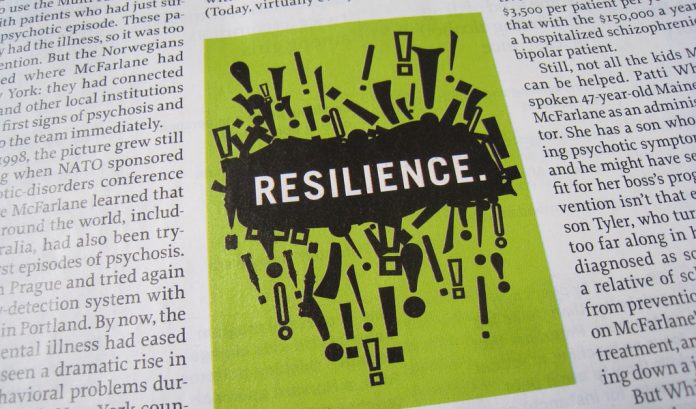
Emotional resilience is defined as one’s ability to respond to an adverse situation and, more importantly, a return to the original state of health. Of the 4 pillars of Lifestyle Medicine, I believe “emotional resilience” is not just an important cornerstone but without it, all your exercise and your diets won’t work without emotional resilience.
As one author says, “Resilient people do not let problems define them. They find resilience by moving towards a goal beyond themselves, transcending pain and grief by perceiving bad times as a temporary state of affairs” (source: “The Art of Resilience” by Hara Estroff Marano, Editor-at-Large for Psychology Today).
Those who master emotional resilience seems to be more adept at confronting personal challenges and accepting what goes their way with flexibility and steadfastness. Something like that tale of a bamboo that bends with the wind when faced with life’s vicissitudes instead of a great oak who stands tall and gets to be blown down by the wind.
So, what traits to look out for in Emotionally Resilient People?
They know their boundaries.
Emotionally resilient people can distinguish their problems and the cause of their temporary suffering from their core identity. They understand that everything is transitory and that whatever they’re experiencing now shall also pass.
They know how to keep good company.
Emotionally resilient people surround themselves with people that not only are resilient like themselves but also are “go-getters” – those who don’t have time to mope and whine about their current state of life but go out and do what they have to do. They also recruit friends and family to give and render support to them when times are tough.
They cultivate self-awareness.
In my world, self-awareness is “mindfulness”. If we’re blissfully aware of our role in the universe and what our purpose on this planet, then it’s easier to overcome any challenge sent our way. But if you don’t have self-awareness, then I suggest trying to meditate and finding your purpose through meditation.
They practice acceptance.
All of us go through pain, stress, and healing sometime in our lives. But sometimes, we become stressful because of the pain we feel. Then it becomes worse and we want it to go away.
The solution to this is to have a “healthy acceptance” that the pain is there but it’s only temporary. Pain may recur no doubt about that. But with acceptance of our pain, we live through one of the most eventful moments of our life. Accept your pain and eventually, it will go away.
They don’t have to have all the answers.
Being emotionally resilient means understanding that we may not have all the answers to every question in life. For instance, nobody can fully answer with 100% certainty why we got sick with this or that disease. An emotionally resilient person will logically look at the problem, accept her or his limitations, answer those questions he can answer, and move on!
They’ve developed a roster of self-care habits.
Emotionally resilient people are masters of taking care of themselves. They have prepared a list of self-care habits that they can dip into to address a lot of issues while convalescing or recovering from various illnesses. No sickness can let them down ☺.
How about you – do you have habits that you’d like to share with us? Leave your suggestions in the comments section below!
Image by Jason Tester Guerrilla Futures / CC BY 2.0
Copyright 2024, DoctorFarrah.com








